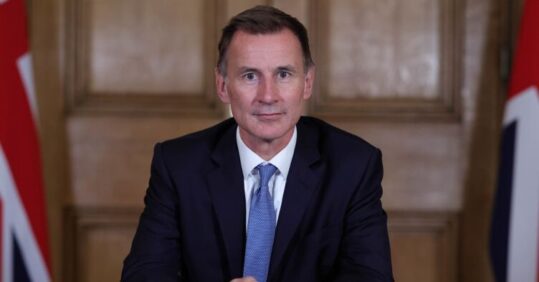Spring Budget delivers no settlement for nurses pay

The Spring Budget, announced today (15 March), included measures to tackle doctors’ pensions and cuts to fuel duties, but any mention of funding for the NHS or a resolution to the ongoing pay dispute was conspicuously absent.
Delivering his second fiscal statement as Chancellor, Jeremy Hunt told Parliament that he was now reporting on an economy which was ‘proving the doubters wrong’ as he revealed that the UK would narrowly avoid a recession this year.
These measures included a £6.5bn investment in childcare and scrapping the lifetime pension allowance which had been leading some doctors to take early retirement.
Related Article: New digital support for community nurses in 10-year plan
However, Mr Hunt drew criticism from some for the omission of any funding that could bring an end to the ongoing pay dispute between healthcare unions and the Government.
Mr Hunt instead blamed other financial factors for the wave of industrial action, saying: ‘high inflation is the root cause of the strikes we have seen in recent months.
‘We will continue to work hard to settle these disputes but only in a way that does not fuel inflation.’
The Royal College of Nursing, which is currently taking part in ‘intensive’ pay negotiations with the Westminster Government, has said that it wants to see a pay offer for nurses of 5% above inflation.
Responding to the Budget Statement, RCN director for England, Patricia Marquis, said: ‘England’s NHS and social care system is ailing and the Budget did not put it on a better path. Jeremy Hunt is on the record less than a year ago raising the alarm over the greatest workforce crisis in NHS history but as Chancellor he is not yet gripping it.
‘The Chancellor found billions to cut fuel duties but left those working in health and care with little assurance they will get the funding that is urgently required. Without staff, the NHS cannot plan for recovery in patient and public services – yet there was only a passing reference to the long-awaited workforce plan.’
Related Article: Nurse had to ‘freeze’ PPE during pandemic to re-use in care home, Covid inquiry hears
However, some of the Chancellor’s Spring Budget announcements were more welcome. It had been previously speculated that Mr Hunt would increase the fuel duty by 7p per litre while the 5p per litre temporary cut came to an end; for a total rise of 12p per litre.
This would have had a severe impact on the finances of district nurses according to a spokesperson for the Queen’s Nursing Institute (QNI). They said: ‘There are no ways to avoid travelling by car when delivering essential healthcare to people in their own homes. Nurses working in rural areas would be particularly hard hit – the only viable way to reach patients in many areas is by car and mileage is very high for those who have a caseload of visits spread over a wide geographical area.’
However, Mr Hunt ultimately announced that he would, in fact, freeze the fuel duty and maintain the 5p cut due to the fact that inflation remains high.
Yet concerns remain about the long-term sustainability of NHS funding and the mounting workforce crisis. Responding to the Spring Budget, Nuffield Trust senior policy analyst Sally Gainsbury said: ‘Just two weeks from the new financial year the NHS has been left with an unrealistic budget for the year ahead. It seems almost inevitable that the Chancellor will have to return to Parliament to address this in the not-too-distant future.
‘Our analysis of DHSC spending and government inflation projections finds today’s Budget leaves the NHS with a £2bn real terms funding cut from April this year. The NHS has been left with little certainty over how it will meet growing demand or address a workforce in crisis.
Related Article: Tell us what practice nursing means to you and potentially win £1,000
‘The Chancellor made this a budget about boosting the workforce across the economy, but the lack of the long-promised fully funded workforce plan for the NHS continues to delay meaningful action. The government remains silent on any funding to shore up a social care workforce eroded to near collapse.’

See how our symptom tool can help you make better sense of patient presentations
Click here to search a symptom




